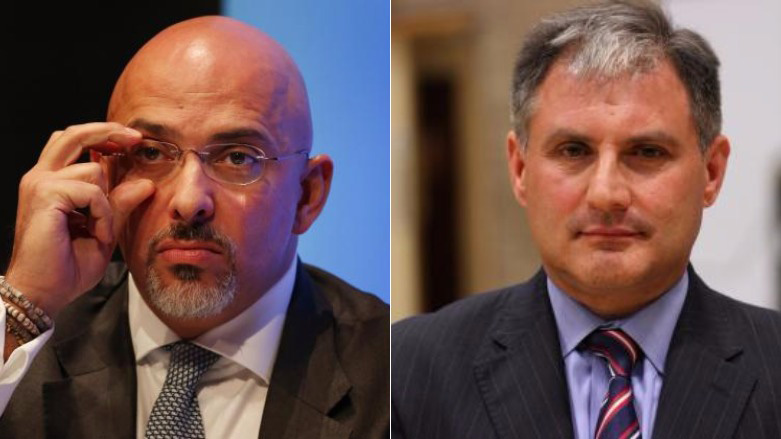Kurds' sacrifices rewarded with oppression, denial of rights by Iraq: KRG Rep.
LONDON, United Kingdom (Kurdistan 24) – The Kurdistan Regional Government's (KRG) Representative to the UK, Karwan Jamal Tahir, on Monday explained that the Kurdistan Region's decision to hold a poll on independence is not recent, but rooted in history.
In partnership with the Center for Kurdish Progress, Kurdistan 24 held a public discussion in the United Kingdom’s House of Commons on the topic of the Kurdistan Region’s independence referendum scheduled for Sep. 25.
The event titled “The Kurdistan Region: A Strategic Ally in a Tough Neighborhood ” was chaired by Gary Kent, the Director of the All-Party Parliamentary Group (APPG) on the Kurdistan Region.
Among the keynote speakers were British Members of Parliament Jack Lopresti and Nadhim Zahawi, as well as the founder and General Manager of Kurdistan 24 Noreldin Waisy and the Kurdistan Regional Government's (KRG) Representative to the UK, Karwan Jamal Tahir.
Tahir mentioned that Iraq was formed out of “colliding interests” by the world's super powers following World War I and that the Kurdistan Region was merged to Iraq without the people’s consent.
He noted that forcibly uniting two nations within one boundary was a bad idea. Therefore, “Iraq has never been a stable country and never will be.”
The representative explained that history has shown Iraq’s handling of the people of the Kurdistan Region, whose rights were almost always denied. Prosecution, abduction, torture, and most notably, genocide against the Kurds, were Iraq's response to the Kurds' demand for greater rights.
He added that after 2003, despite their bitter history, the Kurds envisaged a new era of democracy and prosperity with their Iraqi counterparts and greatly contributed to the rebuilding of the country, both politically and economically. Once again, however, Baghdad refused to share power or accept the Kurds as an equal partner.
“2003 until 2014 was the honeymoon period of our relationship with Baghdad. We made a lot of efforts and concession to stabilize Iraq together, within the framework of Iraq,” he continued. “But the mindset of superiority by the authorities in Iraq over its other components transcended the logic of partnership and power sharing.”
Tahir said following the emergence of the Islamic State (IS) in 2014, there finally was a chance to strengthen ties between Erbil and Baghdad in the fight against a common threat - the jihadist group.
“Instead, we have been rewarded with a budget cut, obstacles with regards to the international community arming Peshmerga forces, and so forth.”
“We have been injured enough. We have had enough of violence, war, and instability. There is nothing left to do but to adopt a different form of coexistence, this in the form of two sovereign countries,” Tahir said.
Regarding the Sep. 25 independence referendum, he noted that the push for self-determination was not recent. “It is grounded in the historical background of suppression and denial of Kurds.”
He pointed out that Baghdad had violated 55 articles, out of the total 144 in the Iraqi constitution, “causing political and security instability for the Kurdistan Region.”
Tahir highlighted that if the ‘Yes’ vote prevailed in the referendum, it would be a mandate for the KRG to negotiate a peaceful secession with Baghdad.
He added that the independence referendum would not affect the Region's priority in fighting IS, as Peshmerga forces were the ones to destroy the myth of IS in 2014.
He said that while some countries emphasize the need to maintain the integrity of a united Iraq, there never was any unity between the various components of the country.
“The new reality requires Kurds and Arabs to live as two nations separately but peacefully, with a greater focus on coordination to obtain peace, prosperity, stability, security and a better future for all. We strongly believe that independence can resolve many crises, and stabilize Kurdistan, Iraq, and wider.”
He also asked the UK and the international community to be present as observers to the referendum process.
“We have waited long enough, and we’ve been asking the international community and our friends here in Britain to come along and observe our referendum, and ultimately, help facilitate a dialogue with Baghdad,” he concluded.
Editing by G.H. Renaud

